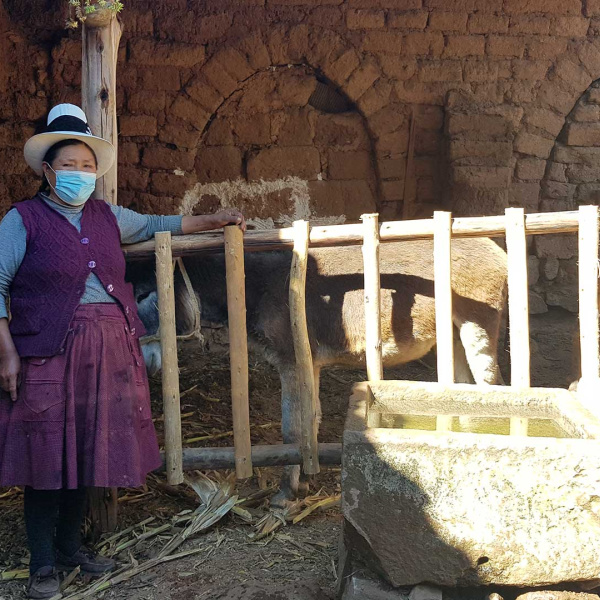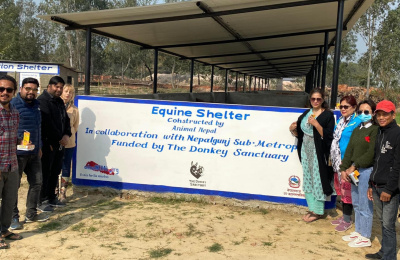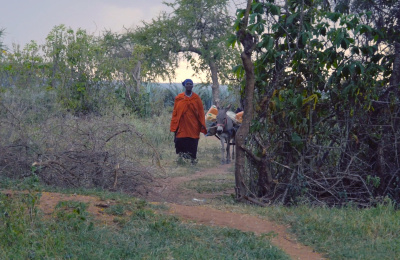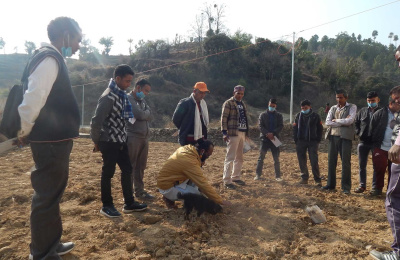Donkeys and their owners in the remote Maras district in Peru have received vital support and training thanks to a collaborative project with Innovar y Compartir (Innovate and Share), a local non-profit organisation.
Life in Maras
Located in the Sacred Valley of the Incas in the Cusco Region of Peru, the town of Marasayllu sits in a beautiful and rugged landscape of mountainous peaks and dazzling white salt works.
The area is well known for its 5,000 salt evaporation ponds located down a steep canyon to the north of the town, which have been in use since Inca times.
Historically, donkeys worked in the Salt Mines of Maras, but this work has now been largely mechanised.
However, donkeys remain in significant numbers and still play an integral part in daily life, helping to support families on their smallholdings.
Understanding the challenges
Though the scenery is stunning, life in this area is harsh, and families only earn a modest living from their smallholdings. Unfortunately, climate change has started to negatively impact everyday living for donkeys and their owners.
The challenges faced by the people of Maras directly impact their ability to provide their donkeys with the required level of care.
Veterinary services in the area are underdeveloped, placing pressure on donkey-owning families who may face their animals becoming sick or injured.
Their situation became even harder during the Covid-19 pandemic when there was a lockdown, leaving the donkeys and people of Maras without income.
Eduardo Santurtun, our Regional Director for Latin America and the Caribbean, says: "The pandemic only compounded the issues faced by the people of Maras. Families were suddenly without funds to buy seeds and grow good quality feed for their donkeys.
Support and collaboration
Through our Covid-19 Emergency Response Fund (CERF), we supported Innovar y Compartir, a non-profit organisation which supports and strengthens the capacities of Peru's rural communities.
Our CERF fund was launched in July 2020 and has helped projects in several countries, including Nepal, India, and Ethiopia.
The project primarily aimed to address the immediate impacts of the pandemic, but it also helped us understand the needs of the local people and their animals and establish how to create lasting improvements to their lives through education and empowerment.
Addressing the immediate impacts
The project provided training on improving animal diets to 49 families. These families also received enough seeds to grow into fodder to support 172 donkeys for a whole year.
Before the project began, more than 100 donkeys across Maras lacked shelter to protect them from extreme weather. Heavy rain, hailstorms and frost are now more commonplace and are longer lasting due to climate change, posing a real risk to animals with no shelter.
Now, more than 170 donkeys enjoy better living conditions and have a safe, secure venue to recuperate overnight. These new homes also allow owners to bond with their donkeys and better monitor their welfare.
We also funded the provision of 73 head collars to help prevent wounds from poor harness and fitting.

Increasing access to veterinary care
In remote locations such as Marasayllu, vets are often based far from donkey-owning communities, and one-off callouts can be prohibitively expensive.
One of the key successes of the project with Innovar y Compartir has been addressing the poor access that donkeys and locals have to veterinary care.
With our support, six new local 'donkey welfare ambassadors' have been trained, supported by a local network including vets, the local authority and Universidad Nacional San Antonio abad del Cusco (UNSAAC).
The ambassadors, who we equipped with basic medical kits, now run planned 'treatment days', where they can tend to multiple animals for free.
As a result of this success, our ambassadors have significantly increased access to donkey veterinary knowledge. They have been crucial in helping promote donkey health and welfare best practices across Marasayllu.
Eduardo says: "This part of the project showed that a coordinated approach can make a positive difference to donkey welfare. It is something we would like to expand to other districts of Cusco."
Looking to the future
We hope that this initial project will spark an important move towards long-term improved donkey welfare across Peru.
Through additional collaborative work with Innovar y Compartir, we want to increase sustainable access for donkey owners to water, food, shelters and harness as well as developing sustainable access for donkeys to local prevention and healthcare services.



